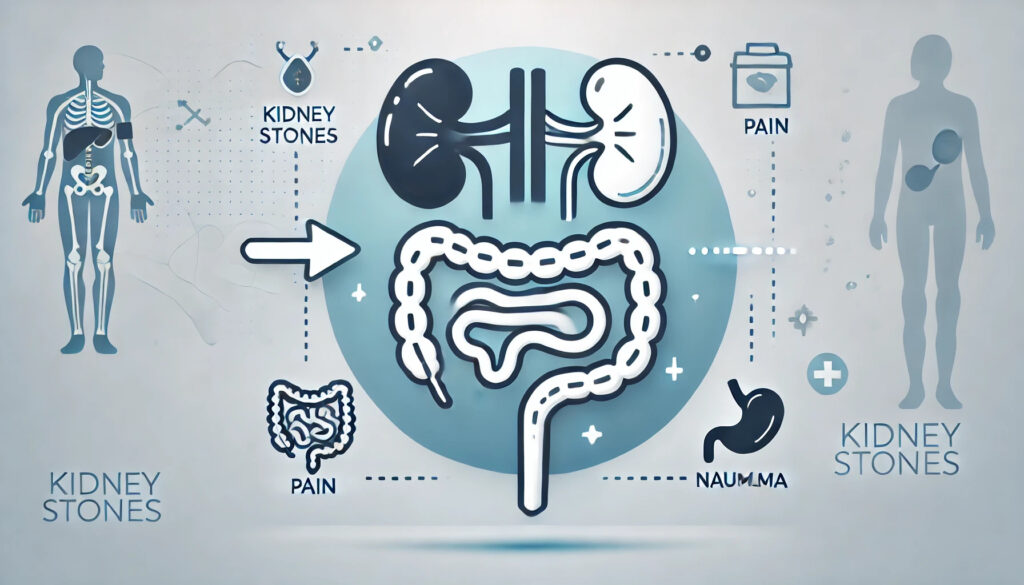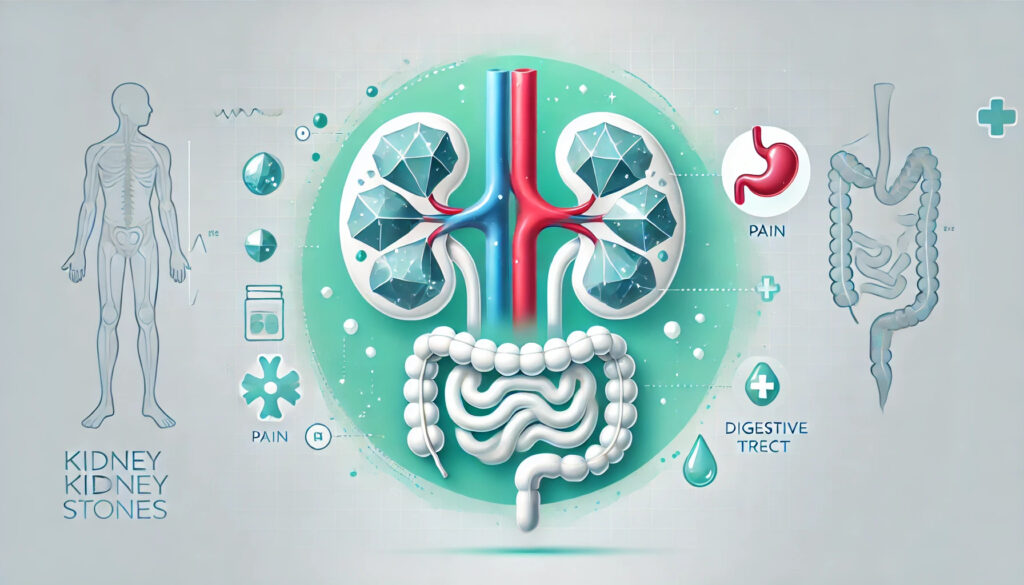Kidney stones can sometimes cause problems in your digestive system, like nausea, and even lead to other complications. Let’s break it down simply.
What Are Kidney Stones?
Kidney stones are hard, crystal-like lumps that form in your kidneys. They’re common, affecting about 600,000 Americans every year. While anyone can get them, certain factors like genetics, dehydration, digestive issues, or infections can increase your risk.
Can Kidney Stones Cause Digestive Symptoms?
Yes, they can. Here are some symptoms:
- Pain: Kidney stones cause sharp pain (called renal colic) that may come in waves. You’ll likely feel it in your abdomen, sides, lower back, or groin.
- Nausea and Vomiting: These can happen as a reaction to the pain. If you experience this, it’s a sign to see a doctor.
Can Kidney Stones Lead to Digestive Problems?

Sometimes, having kidney stones can lead to new digestive issues:
- Irritable Bowel Syndrome (IBS): Studies show that people are more likely to develop IBS within six months of having their first kidney stone.
- Bowel Obstruction: In rare cases, a kidney stone might block your intestines, causing severe constipation or vomiting.
Can Digestive Issues Cause Kidney Stones?
Yes, certain digestive problems can lead to kidney stones:
- Chronic Diarrhea: This can cause dehydration, a common trigger for kidney stones.
- Inflammatory Bowel Disease (IBD): Conditions like Crohn’s disease or ulcerative colitis can make it harder for your body to absorb nutrients, leading to kidney stones.
- Abdominal Surgeries: Procedures like gastric bypass can sometimes cause diarrhea or malabsorption, which may result in kidney stones.
Other Kidney Stone Symptoms
Not all symptoms are related to digestion. You might also notice:
- Painful, frequent, or urgent urination
- Bloody, cloudy, or bad-smelling urine
- Fever, chills, or sweating
When to See a Doctor
If you think you have kidney stones, call a doctor. Severe pain, nausea, or vomiting means you need immediate medical attention. A doctor can help determine if your stones are small enough to pass naturally or if treatment is needed.
Common Questions
- Can kidney stones affect bowel movements? Rarely, but in extreme cases, they can cause bowel obstructions.
- What digestive issues can cause kidney stones? Chronic diarrhea, IBD, and abdominal surgeries.
- What digestive issues can kidney stones cause? IBS and, very rarely, bowel obstructions.
The Takeaway
Kidney stones and digestive issues are sometimes linked. One can cause the other, or they can exist independently. If you have symptoms of both, consult a doctor right away to get the right diagnosis and treatment.


